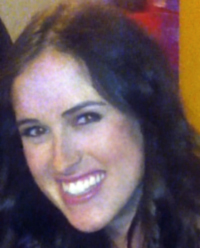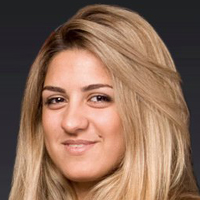Two SMU students become first at any university
west of Ohio to earn degrees in human rights
Two SMU students become the first west of Ohio to earn degrees in human rights.
DALLAS (SMU) — Dallas-area residents Samantha Matthews and Shirin Tavakoli made history Saturday when they became the first students at SMU — or at any university west of Ohio — to earn Bachelor of Arts degrees in human rights.
“Human rights is an increasingly important area of study, and we look forward to the great work of these future human rights leaders and innovators,” said SMU President R. Gerald Turner.
Last year SMU became only the fifth school in the nation to offer a human rights undergraduate degree, administered through the Embrey Human Rights Program in Dedman College of Humanities & Sciences.
“The essence of a great liberal arts education is preparing students broadly for the complexity and diversity of the world,” said Dedman College Dean William Tsutsui. “There’s nothing more timely than understanding the challenges of human rights, which are deeply rooted in history, global in scope, and really demand attention from all governments and individuals.”
Embrey Human Rights Program Director Rick Halperin called Matthews and Tavakoli the embodiment of SMU’s mission, “which is to help young people be the most responsible citizens of the world they can be, and to strive to eradicate pain and injustice wherever they can.”

One of her most significant accomplishments is having raised more than $40,000 for the Irving-based Hearts Across Romania. Since being encouraged by a close friend to volunteer for the organization at age 16, Matthews has traveled to Romania five times to help the country’s orphans. She said she knew by her second trip that working with the children there would become a major part of her life’s work.
Matthews recalled an important conversation with one of the older orphanage residents:
“One of the teens said, ‘Sam, you came back.’ And I said, “Yes, I said I would.” The teen replied, ‘No, you don’t understand. People don’t come back. They come here, and they feel bad for us, and then they go home and they forget about us. But you came back.’ Matthews called that her “a-ha” moment, when she realized the power of her caring.
She also has helped care for and educate orphaned children in Rwanda. And closer to home, for the last three years she has been volunteering at Vickery Meadow, a large refugee community in Dallas.
“I think a lot of young people would be interested in studying human rights if they knew what a difference it could make in their own life and the lives of so many others,” Matthews said.

“I’m particularly interested in women’s rights,” Tavakoli said. “Being raised in a country where women are oppressed had a huge impact on me, so I’ve always wanted to do something about that. SMU has allowed me many opportunities to do so.”
Tavakoli is past president of SMU’s student chapter of Amnesty International, founder and past president of the Innocence Project of Texas, was a member of Model United Nations and was founding editor-in-chief of the online newsletter Human Writes, sponsored by SMU’s Embrey Human Rights Program.
Her SMU-affiliated community service work, however, doesn’t end after graduation. Early next year Tavakoli will travel to El Salvador with a University group that will focus on Latin America’s human rights issues.
“In learning about torture, genocide, segregation, racism and other injustices, I’ve discovered one common element: That the abuser thinks of the victim as a lesser person,” Tavakoli said. “Until we realize that everyone is created equal, my No. 1 goal will be advocating for human rights.”
###
#09781-nr-12/17/12-dg